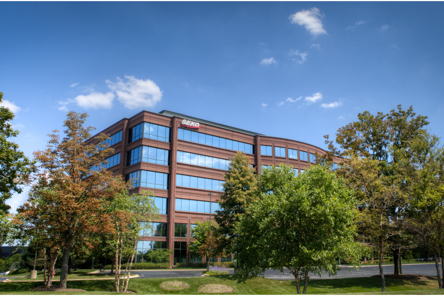In an era defined by globalization and rapid technological advancements, the importance of an efficient and robust supply chain cannot be overstated. As businesses expand their global reach , the need for a reliable intermediary to manage logistics becomes paramount. Enter the 3PL company, a linchpin in the vast machinery of modern supply chains.
WHAT IS A 3PL COMPANY?
3PL stands for third-party logistics. At its core, a 3PL company specializes in the outsourced logistics services that encompass everything from transportation to warehousing. Over the years, as businesses have sought to streamline operations and focus on their core competencies, 3PLs have evolved to play a pivotal role in managing complex supply chain tasks, ensuring goods reach their destination efficiently and effectively.
CORE SERVICES OF A 3PL COMPANY
Transportation: This involves the movement of goods from one location to another. 3PLs often have a vast network of transportation solutions, including trucks, ships, airplanes, and trains to ensure timely and safe delivery.
Warehousing: Beyond just storage, modern warehousing provided by 3PLs includes inventory management, order fulfillment, and even packaging. These facilities are equipped with the latest technology to track and manage products efficiently.
Distribution: 3PLs manage the distribution of products, ensuring they reach the right place at the right time, whether it's a retail store, another business, or directly to the consumer.
Value-added Services: Many 3PLs offer services beyond the basics, such as cross-docking, labeling, product repairs, and customs brokerage.
THE EVOLUTION OF 3PLS
Historically, businesses managed their logistics in-house. However, as the global market expanded and operations became more intricate, the need for specialized expertise grew. Initially, the role of 3PLs was limited to certain tasks, but over time, as businesses recognized the value of outsourcing complex logistics operations, it expanded.
Today, 3PLs are more than just service providers; they are partners in a company's success. They bring expertise, technology, and a network that many businesses cannot develop on their own. By handling the complexities of the supply chain, they allow businesses to focus on their core competencies, such as product development, marketing, or sales.
In essence, a 3PL company acts as a bridge, connecting businesses to their customers through logistics services. Their role is not just about moving goods; it's about optimizing the entire supply chain process to ensure efficiency, cost-effectiveness, and customer satisfaction.
THE INTEGRAL ROLE OF A 3PL IN SUPPLY CHAIN MANAGEMENT
Imagine a world where manufacturers had to handle every aspect of getting their products to consumers. The logistical challenges would be monumental. 3PLs serve as the bridge in this scenario. They ensure that products move seamlessly from production facilities to store shelves and ultimately to consumers' hands.
PARTNERING WITH A 3PL COMPANY OFFERS BUSINESSES SEVERAL ADVANTAGES:
Expertise: 3PLs bring in-depth knowledge of regulations, shipping routes, and warehousing best practices.
Cost Savings: By consolidating shipments and optimizing routes, 3PLs can significantly reduce transportation costs.
Flexibility: Whether it's a sudden spike in demand or expanding to new markets, 3PLs can scale operations accordingly.
HOW DO 3PL COMPANIES HELP BUSINESSES RUN MORE EFFICIENTLY?
3PL companies play a pivotal role in enhancing the operational efficiency of businesses. One of the primary ways they do this is by taking on the intricate and often cumbersome tasks of managing a company's logistics operations. By outsourcing these functions to a specialized 3PL provider, businesses can spend their focus elsewhere.
Efficiency in logistics is not just about moving goods from point A to point B; it's about optimizing the entire process. 3PLs bring expertise and technology to the table. They have systems in place to manage inventory, streamline warehousing, optimize transportation routes, and ensure timely deliveries. This means reduced lead times, fewer errors, and more satisfied customers.
Furthermore, 3PLs have vast networks that individual businesses might not have access to. This network allows for bulk shipping discounts, better warehousing rates, and quicker access to various markets. By leveraging these networks, businesses can expand their reach without the overheads of setting up their own logistics infrastructure.
By partnering with a 3PL, businesses can transform their logistics from a potential headache into a competitive advantage. The expertise, technology, and network that a 3PL provides ensure that goods flow seamlessly, efficiently, and cost-effectively through the supply chain.
CAN A 3PL MAKE A BUSINESS MORE SUSTAINABLE AND PROFITABLE?
Absolutely, a 3PL can be a catalyst for both sustainability and profitability in a business. On the sustainability front, many 3PLs are now adopting green practices. They are investing in fuel-efficient vehicles, optimizing routes to reduce carbon footprints, and implementing sustainable warehousing practices. By partnering with such a 3PL, businesses can significantly reduce their environmental impact. This not only contributes to a healthier planet but also resonates with eco-conscious consumers, enhancing a company's brand image.
Profitability, on the other hand, is directly linked to efficiency in logistics. A reliable 3PL ensures that goods are stored, handled, and transported in the most cost-effective manner. Reduced wastage, optimized storage, bulk shipping discounts, and efficient transportation all contribute to cost savings. These savings can then be passed on to consumers in the form of competitive pricing or reinvested into the business for growth and expansion.
Moreover, a 3PL provides businesses with scalability. Whether it's peak season demand or expansion into new markets, a 3PL can quickly scale operations to meet the requirements. This flexibility ensures that businesses can seize opportunities without being bogged down by logistical challenges.
A 3PL does more than just manage logistics; it adds value to the entire business operation. By driving sustainability and efficiency, a 3PL can significantly enhance a company's profitability and brand reputation in the market. Find out more about what value a 3PL can add to your operation in our Complete Guide to Third-Party Logistics (3PL).
WHAT SETS SEKO APART:
Hands-on Service: Every client is unique, and SEKO's approach is tailored to meet individual needs.
Personal Relationships: At SEKO, business is personal. Building and maintaining strong client relationships is at the heart of everything we do.
Innovative IT Solutions: In a digital age, SEKO leads the industry with cutting-edge IT solutions, ensuring clients have real-time visibility into their supply chains.
In the vast landscape of 3PL providers, SEKO stands out as a beacon of excellence. Offering a comprehensive suite of services, including ground, air, and ocean freight, SEKO is a trusted partner to businesses worldwide. Reach out and see how our expertise in logistics can make your business run more efficiently.





